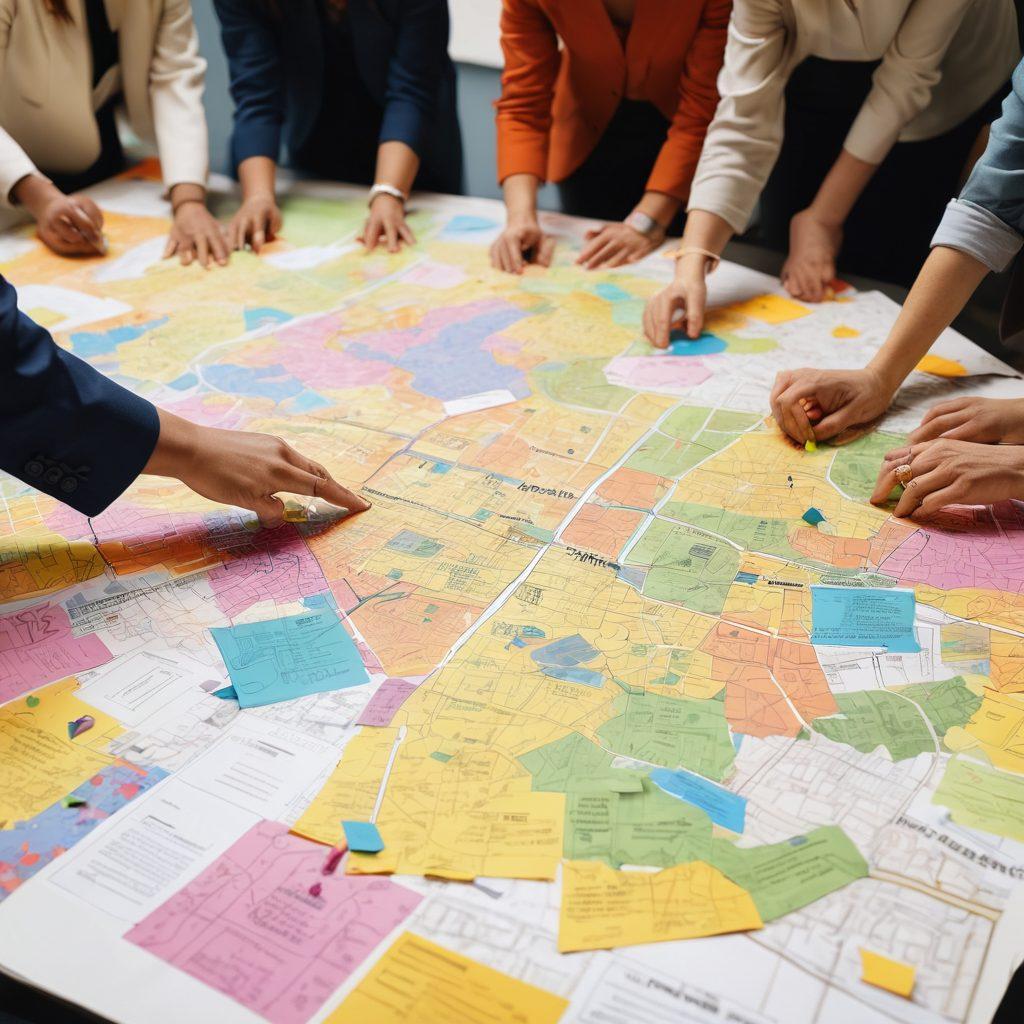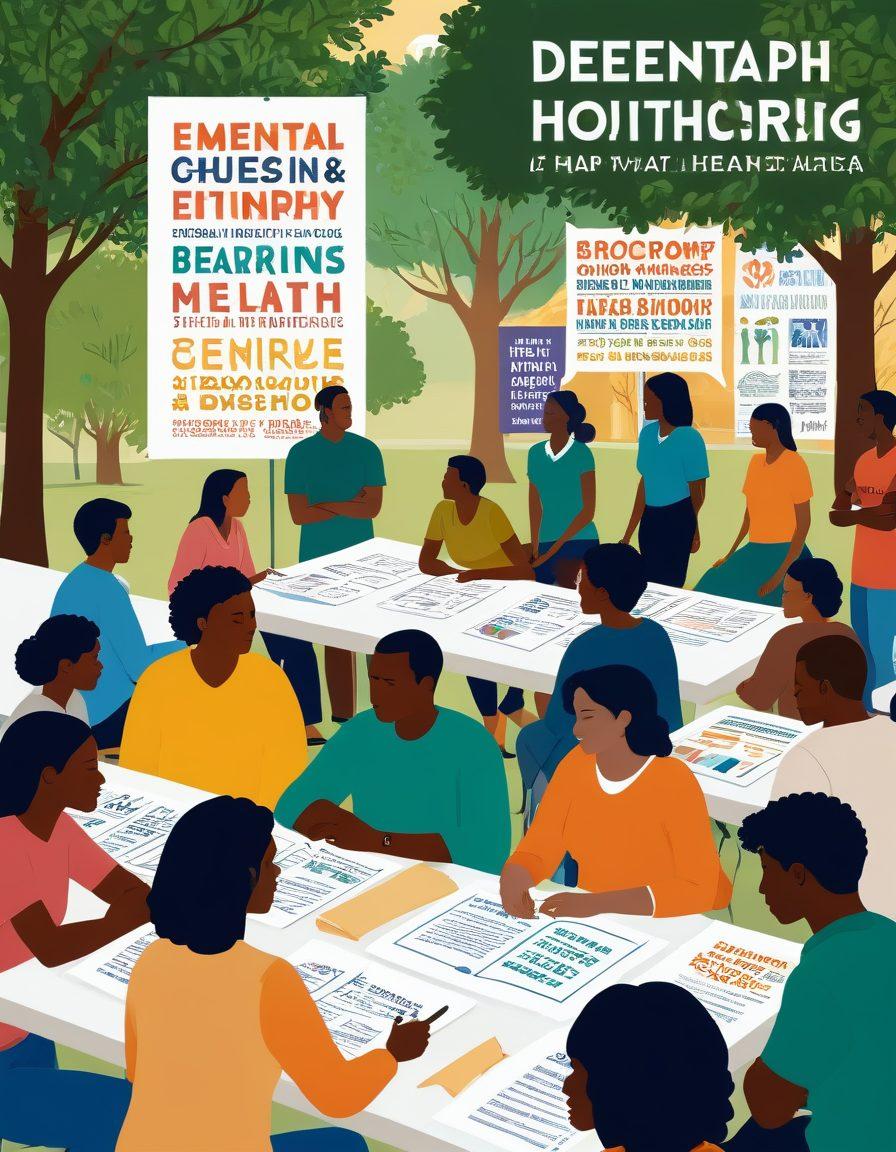Empowering Communities: Innovative Strategies for Non-Violent Crisis Intervention and Mental Health Support
In an increasingly fast-paced world, community members can feel overwhelmed, anxious, and isolated. How can we ensure that our environments foster safety, mental health support, and resilience? The answer may lie in non-violent approaches to crisis management. These innovative strategies not only address immediate concerns but also empower individuals and communities to prioritize wellness through preventive measures and support services. As the saying goes, ‘It takes a village to raise a child,’ but it equally takes a village to uplift those in distress. So, how can we transform our villages into safe havens for mental wellness?
To tackle crises effectively, communities need to embrace non-violent crisis intervention techniques. These techniques prioritize understanding over confrontation. For instance, outreach programs can offer safe spaces for people to express their struggles without the fear of judgment. These safe places become vital lifelines in times of distress. Why should we wait until crisis strikes to engage with vulnerable populations? By integrating social services within our communities, we can create a lasting culture of mental health awareness and support that actively fosters resilience.
Let’s take a moment to reflect on the remarkable work of aid organizations and their role in providing resource support. By implementing rehabilitation services and wellness programs, they help communities navigate challenges with dignity and support. Picture this: a young adult grapples with mental health issues and feels too embarrassed to seek help. However, a familiar face, a friendly outreach program volunteer, emphasizes the importance of asking for help. Suddenly, this person feels supported and empowered to find necessary resources. Powerful, isn’t it? Every initiative that promotes transparency and connection cultivates a community's ability to respond non-violently to crises.
Building upon such empowerment initiatives is crucial, and they begin with awareness. Hosting workshops, community discussions, and informative seminars can enlighten individuals on the benefits of mental health support services. Think about how many people secretly struggle—how many might feel alone until they understand that they aren’t? When communities come together to address mental wellness, they foster a sense of belonging that makes crisis intervention much more effective. When we raise awareness, we also reinforce the idea that seeking help is not a sign of weakness but rather a testament to our strength as a collective.
In conclusion, fostering resilience through non-violent approaches to crisis management not only addresses the immediate needs of individuals in crisis but also cultivates a culture that champions wellness and unity. Empowering communities through outreach programs, social services, and mental health support creates a spiral effect, encouraging individuals to prioritize their own wellbeing and the wellbeing of others. As we strive to create safer environments, let’s remember: every conversation counts, every small initiative matters, and together—we can make an impactful difference. So, what will you do today to contribute to mental wellness in your community?
Community-Driven Solutions: Empowerment Initiatives for Effective Crisis Intervention
In a world where crises can erupt at any moment, from mental health emergencies to social unrest, the call for innovative and community-driven solutions has never been more pressing. Imagine walking down your street, feeling the pulse of your neighborhood, and knowing that, together, you could tackle unexpected challenges through non-violent crisis intervention and mental health support. It's here where the story truly begins, highlighting the power of empowerment initiatives that foster a safe and supportive community. How can we turn our towns into safe havens? Can collective efforts lead to revolutionary changes in crisis intervention? It starts with awareness and action.
Community-driven solutions stem from the understanding that safety isn't just the absence of violence; it is the presence of support services, outreach programs, and empathetic engagement. When we empower individuals with the resources they need, we open the door to preventive measures that can thwart crises before they escalate. Can you envision a world where communities flourish because the people within them are armed with knowledge and tools to maintain their mental health? Empowerment initiatives are the lifeblood of this vision, creating a cohesive network of resource support that strengthens the very foundations of our societies.
As we explore the realm of effective crisis intervention, one cannot overlook the integral role of social services and wellness programs. These systems act as lifelines for individuals struggling with mental health challenges or experiencing situational crises. With the aid of organizations dedicated to mental health support and rehabilitation services, communities can harness the potential of their members, turning them into advocates for change. Stories abound of individuals who have triumphed over adversity due to the availability of support services in their community. What if your community became a beacon of hope through shared stories and collective empowerment?
Engaging in these initiatives isn’t just about crisis management; it’s about fostering an environment where vulnerability is met with compassion. Imagine localized gatherings, where skilled facilitators lead discussions on mental wellness, and regular workshops that equip residents with the tools needed for crisis intervention. These outreach programs can not only educate but forge relationships between community members, cultivating a culture of mutual respect and understanding. Could this be the antidote to feeling isolated during tough times? The answer is a resounding yes, as evidence shows that social connections are crucial to individual and communal wellness.
The road toward a proactive community approach to crisis intervention is paved with shared vision and commitment. It is essential for local leaders, residents, and aid organizations to collaborate, sharing resources and knowledge. By promoting awareness of the existing support services and advocating for new empowerment initiatives, we can ensure that our neighborhoods are not only reactive but also resilient. After all, each small step towards engagement is a leap towards creating a safe, nurtured community. What legacy of support and strong mental health will we leave for future generations? Let us embark on this journey together, empowering one another to handle crises with courage and grace.
Building a Safer Future: Comprehensive Outreach Programs for Mental Health and Support Services
In a world where chaos often seems to drown out compassion, the vision for a safer future through community empowerment is more critical than ever. Picture a neighborhood where mental health support is a priority, where outreach programs serve as lifelines for those in need. Imagine a collective effort to implement non-violent crisis intervention tactics that ultimately foster a culture of safety and understanding. This is not just a dream; it's a call to action that communities everywhere can embrace. What if we could redefine the landscape of social services, steering away from reactive measures and toward preventive strategies?
The heart of the matter lies in awareness. Without this crucial element, many individuals suffer quietly, trapped in their struggles without the support services they desperately need. By fostering awareness through local campaigns and community workshops, we can empower individuals to recognize the signs of mental health crises not just in themselves but in those around them. As Margaret Mead famously said, 'Never doubt that a small group of thoughtful, committed citizens can change the world; indeed, it’s the only thing that ever has.' Every little effort counts towards establishing a stronger, more cohesive community.
Outreach programs play a pivotal role in building this safe environment. They serve as bridges between aid organizations and those who may feel isolated and vulnerable. Imagine a wellness program that extends beyond therapy sessions to include outdoor activities, peer support groups, and educational workshops. Each initiative can be tailored to address various aspects of mental health, making them relatable and effective. How can we reach those who need help the most? This question should drive the development of robust outreach strategies, ensuring these resources are accessible to everyone, especially marginalized groups.
Preventive measures should trump reactive ones, igniting conversations about mental health early and often. By creating rehabilitation services that are intertwined with community initiatives, we can offer holistic support rather than fragmented aid. Empowerment initiatives can also encourage individuals to actively participate in their wellness journey. Picture community gardens where people not only cultivate food but also foster relationships and share their stories. These connections can transform the way we view support services, embedding them in our daily lives.
Ultimately, building a safer future lies in our ability to harness the collective strength of community services. It’s a reminder that every one of us holds the potential to contribute to the fight against mental health crises. We can support one another through outreach programs, share resources, and advocate for societal change. Our collaborative efforts can shape environments where safety thrives and non-violent strategies help foster resilience. As we continue to work together, let us keep the vision alive, knowing that each step we take can lead to a far-reaching impact, making our communities not just safer, but more vibrant and connected.


